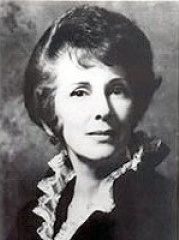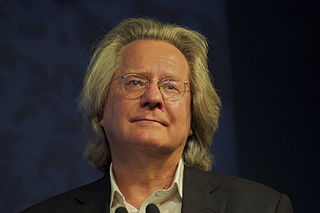A Quote by Peter Drucker
The society of organizations is new-only seventy years ago employees were a small minority in every society.
Related Quotes
The Humane Society of the United States works with local Humane Societies across the country. We don't control every local Humane Society in this nation. These organizations strive to the greatest degree to provide homes for animals and to encourage adoption, to spay and neuter animals. And if a decision is made to euthanize, it is a failure of society, not the local organizations who are striving to do their best.
Well, years and years ago, I started to ask myself three very simple questions, which dominated my life for many years. One of them was, "Why are organizations everywhere, whether commercial, social, or religious, increasingly unable to manage their affairs?" The second question was, "Why are individuals throughout the world increasingly in conflict with and alienated from the organizations of which they're a part?" And the third was, "Why are society and the biosphere increasingly in disarray?"
Those individuals who give moral considerations a much greater weight than considerations of expediency represent a comparatively small minority, five percent of the people perhaps. But, In spite of their numerical inferiority, they play a major role in our society because theirs is the voice of the conscience of society.
Our society and our organizations have learned to value masculine, 'quick-fix' traits in leaders. In a primitive society, a rural society, or even the industrial society of the early 1990s, quick fixes worked out all right. But they are less likely to work in a complex society. We need to look at long-range outcomes now. Service and patience are what can keep things running effectively today and women can contribute a lot in both of these areas.
Used to the conditions of a capitalistic environment, the average American takes it for granted that every year business makes something new and better accessible to him. Looking backward upon the years of his own life, he realizes that many implements that were totally unknown in the days of his youth and many others which at that time could be enjoyed only by a small minority are now standard equipment of almost every household.
We might expect intelligent life and technological communities to have emerged in the universe billions of years ago. Given that human society is only a few thousand years old, and that human technological society is mere centuries old, the nature of a community with millions or even billions of years of technological and social progress cannot even be imagined. ... What would we make of a billion-year-old technological community?
In every new generation, the impulses supposed to have been rooted out by discipline in the child break forth again when the struggle for existence - of the individual in society, of the society in the life of the state - begins. These passions are not transformed by the prevalent education of the day, but only repressed.
The concept of the "information society" is both vague and all-embracing. Different participants meant different things by it. In practice, though, World Summit on the Information Society only dealt with a small number of issues: ICTs and human rights (to some extent), ICTs and development (to some extent), infrastructure finance and Internet governance. Very large aspects of what might have been included in the "information society" were not really discussed.
Perhaps worse still is what liberal societies might do to themselves in the face of this new and different threat [of terrorism]. They begin, by small but dangerous increments, to cease to be as liberal as they once were. They begin to restrict their own hard-won rights and freedoms as a protection against the crminial minority who attempt (and as we thus see, by forcing liberty to commit suidcide, succed in doing) to terrorise society.




































